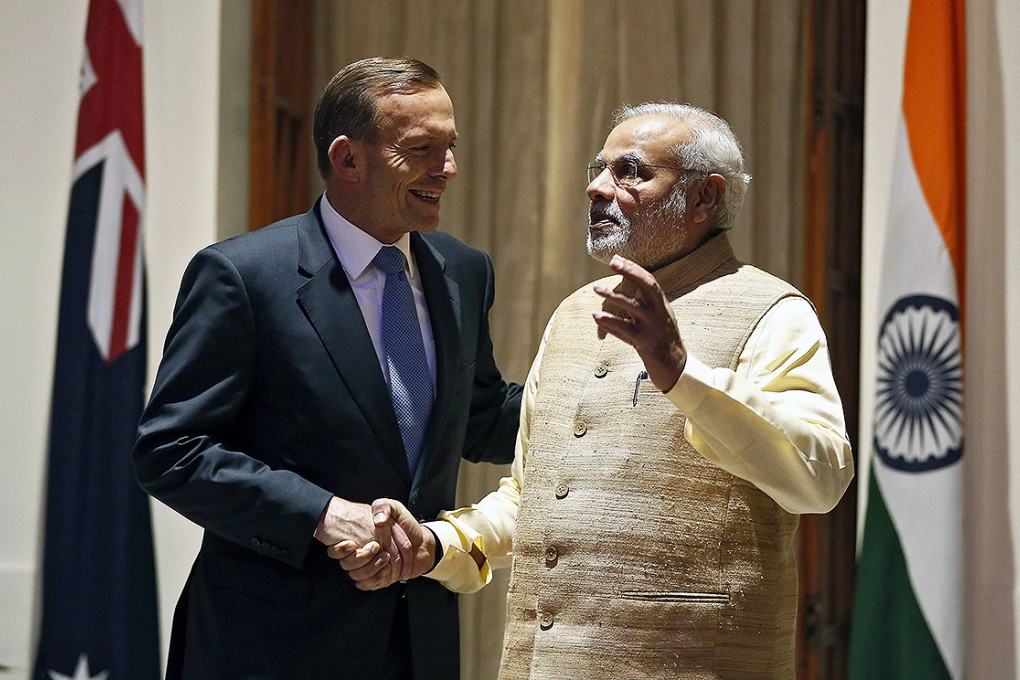Australia and India set to sign landmark nuclear energy deal
Australian prime minister calls for closer ties with India ahead of long-awaited energy agreement

Australian Prime Minister Tony Abbott said he wanted first-rank relations with India as he looked to sign a long-awaited nuclear energy deal with his counterpart Narendra Modi yesterday.
Abbott said India and Australia were bound by "strongly convergent" trade and strategic interests on the last day of his visit, which culminates with the deal to supply uranium to the energy-hungry country.
He was set to sign the deal last night after his meeting with fellow right-wing leader Modi, who stormed to power in May on a pledge to open up the ailing economy to foreign investment.
"My visit to India reflects Australia's desire for India to be in the first rank of Australia's relations," Abbott wrote in The Hindu newspaper yesterday.
"Australian resources like coal, LNG and uranium will provide India's energy security for decades to come. I welcome our conclusion of a bilateral Civil Nuclear Agreement which will support India's energy needs."
India and Australia began negotiations on uranium sales in 2012 after Canberra lifted a long-time ban on exporting the ore to Delhi to meet its ambitious nuclear energy programme.
Australia, the world's third biggest uranium producer, had previously ruled out such exports to nuclear-armed India because it has not signed the global non-proliferation treaty.